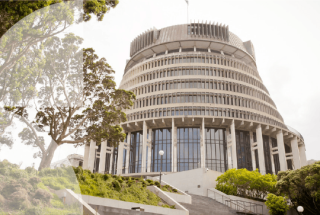Ombudsman disturbs confidential settlement agreement

Ombudsman disturbs confidential settlement agreement
Thursday 3 May, 2018
The Ombudsman has required that Whanganui District Council reveal some details of a supposedly commercial settlement.
In 2013 the council sued MWH in negligence over the failure of the wastewater treatment plant designed by the company for the city. There were odour issues from the outset and the plant was never able to meet the terms of its resource consent. In March 2016 MWH paid a sum to Council to settle the dispute, without admitting fault or liability. The settlement sum was expressed as being confidential.
The Wanganui Chronicle made a LGOIMA request for details of the settlement. The council refused the request, citing the importance of maintaining the confidentiality of the settlement. LGOIMA protects confidential information if disclosure would prejudice the supply of similar information or would otherwise damage the public interest. LGOIMA also protects information which is likely to prejudice the commercial position of the person who supplied, or is the subject of, the information.
Unsatisfied, the newspaper took the matter to the Ombudsman. The Ombudsman ruled that the council was entitled to refuse to disclose the settlement sum but took the view that there was a public interest in the disclosure of adequate information to promote the council’s accountability in achieving a responsible and reasonable settlement. Accordingly, the Ombudsman recommended disclosure of “a certain level of information”.
The Ombudsman’s approach in this case is consistent with his approach to official information generally. Since his appointment as Ombudsman in December 2015, Peter Boshier has made clear his intention to encourage greater transparency and swifter resolution of official information complaints.
The council accepted the Ombudsman’s recommendation. It disclosed that in the settlement the council had received an amount which was greater than both the total costs of the litigation and the professional fees paid to MWH for the design of the wastewater plant.
This disclosure, when coupled with information already in the public arena, revealed somewhat more than might appear at first glance. The council had previously disclosed that its legal costs to the end of 2015 in relation to the dispute were $860,000. And in March 2016 the council applied $8 million to debt reduction.
The council complied with the Ombudsman’s recommendation but would have been reluctant to reveal any details of the settlement. It had agreed with MWH that the settlement sum would be confidential. More importantly, the council is likely to enter into settlement negotiations on other matters at some point in the future, and it now has first-hand knowledge that the Ombudsman has an appetite for greater disclosure than parties to a settlement would prefer.
We understand that the Ombudsman has made similar recommendations in other cases concerning out of court settlements with local authorities and we appreciate that this may be of concern to other councils.
Please contact Megan Crocket if you would like to discuss the implications of the Ombudsman’s recommendation.





